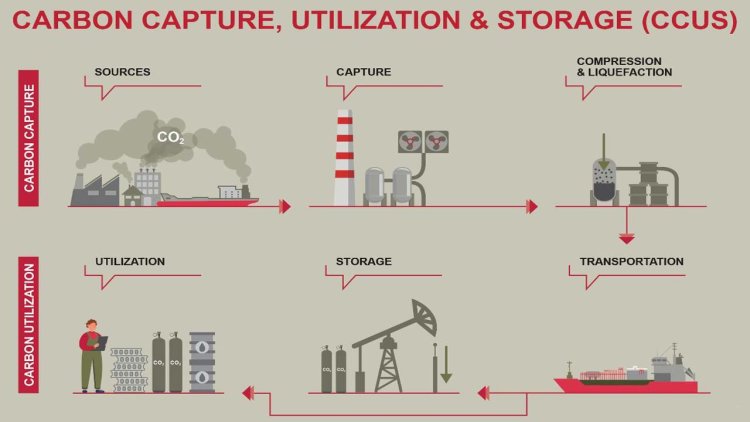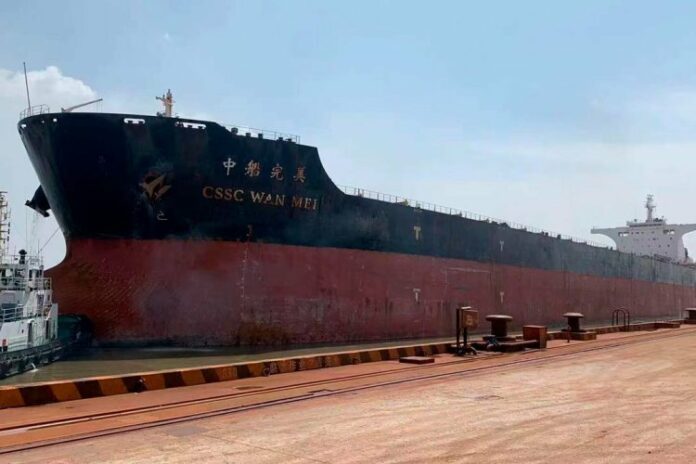Bureau Veritas (BV), Wah Kwong and Shanghai Qiyao Environmental Technology Co. Ltd. have signed a cooperation agreement to study the feasibility of installing carbon capture and storage (CCS) units on existing ships to meet 2030 CII targets.
The study will focus on two types of bulk carriers in operation in the Wah Kwong fleet. Based on the specific design parameters of the vessels, Qiyao Environmental Technology has developed a customized design of CCS units for the Wah Kwong fleet and submitted relevant drawings. BV reviewed the plans according to existing regulations and rules to ensure the safety of the vessels and equipment, and that the carbon emission reduction targets are effectively achieved during the operation of the vessels. Subsequent research work will be conducted for oil tankers.
The CCS concept developed by Qiyao Environmental Technology has completed laboratory testing, achieving a total carbon capture rate of over 85% so far and the system is in the process of continuous optimization. The CCS unit can be designed for different ship types and sizes. The design approval of the CCS unit is under review.

The CCS system mainly consists of an absorption unit, a separation unit, a compression unit, a refrigeration unit and a storage unit. The main principle is that the organic amine compound solution reacts with the carbon dioxide (CO2) in the absorption unit, separating it from the rest of the exhaust gas. The dissolved carbon dioxide compound solution is desorbed at high temperature in the separation tower, before the extracted carbon dioxide is compressed, purified and cooled into liquid carbon dioxide and stored in a low temperature storage tank.
Alex Gregg-Smith, Senior Vice President & Chief Executive, North Asia & China, Bureau Veritas Marine & Offshore, commented:
“The transition to a greener shipping industry is critical. Carbon capture, utilisation and storage (CCUS) technology captured a total of 40 million tonnes of CO2 in 2021 according to the International Energy Agency (IEA), notably in industrial projects on shore. This makes CCUS one of the options available today that could significantly contribute to achieve carbon neutrality, as well as a promising avenue for reducing emissions from shipping. We are very honoured to collaborate on this study. BV’s expertise in supporting CCUS projects, combined with Wah Kwong’ and QIYAO’s technical and strategic capabilities, will help to spur the implementation of CCUS technology in the shipping industry.”
Carbon capture technology has been used in the land-based industry for many years and the solutions are mature. However, as a marine application, the challenges that must be addressed are safety, layout, energy consumption, and the need to balance cost effectiveness.



